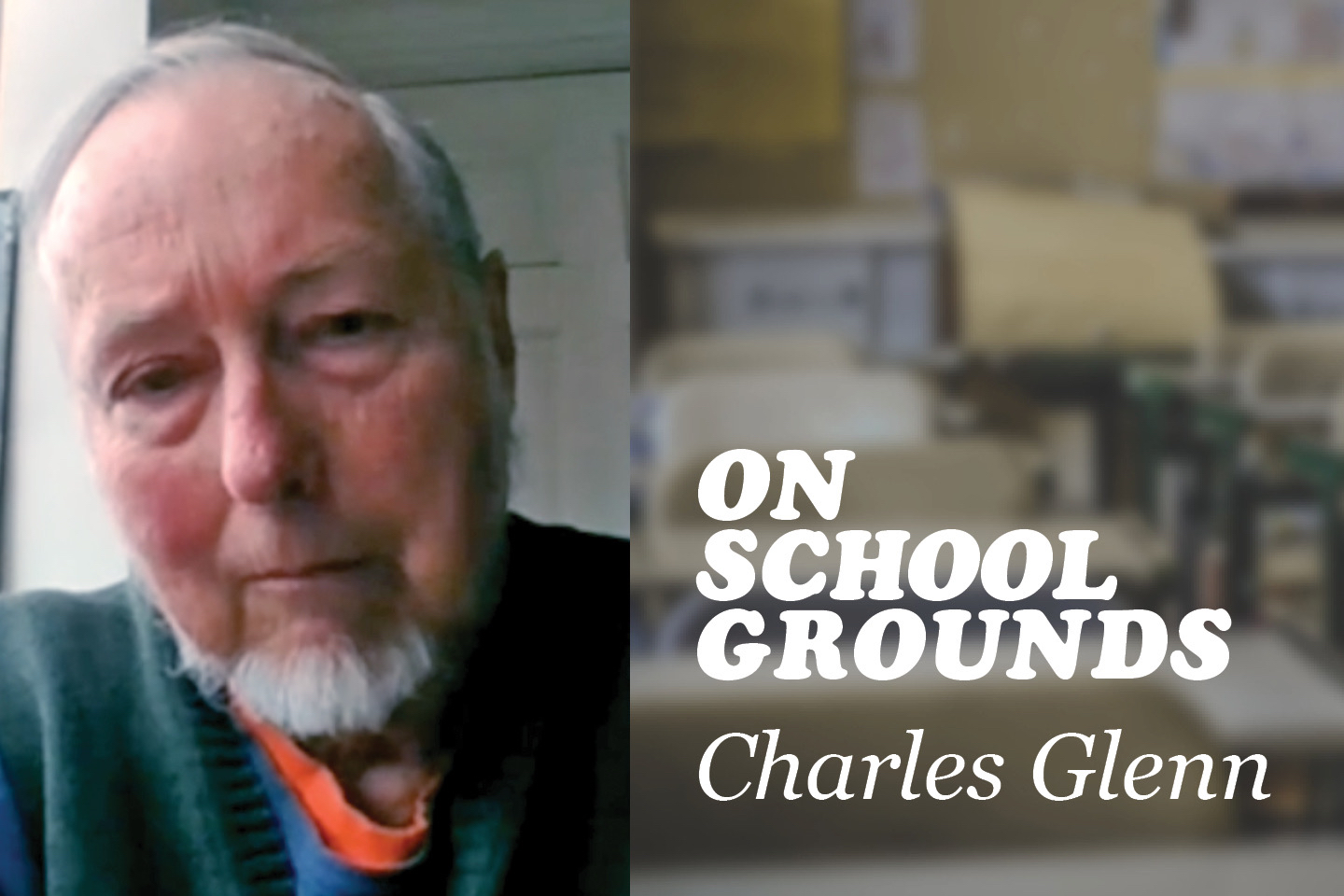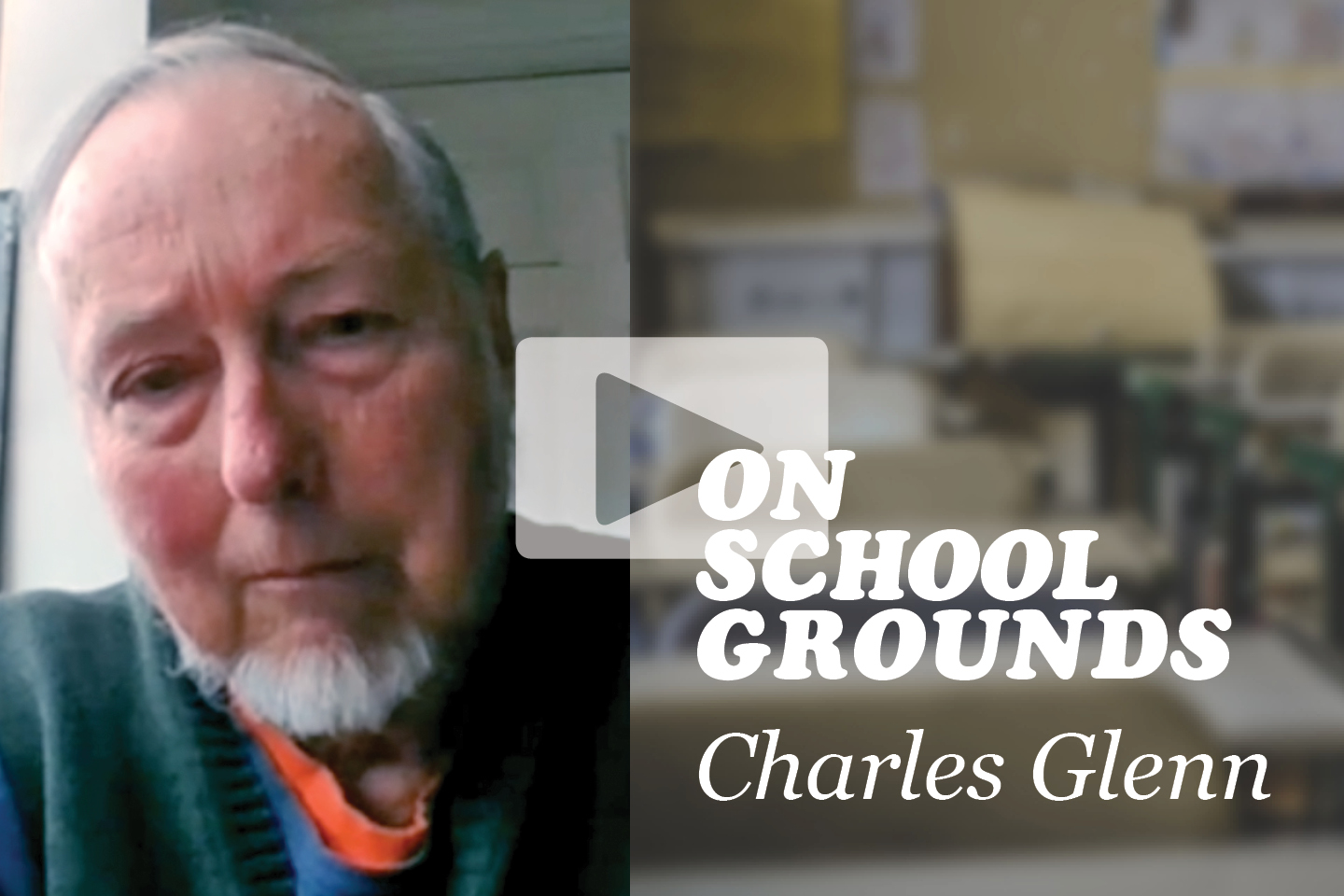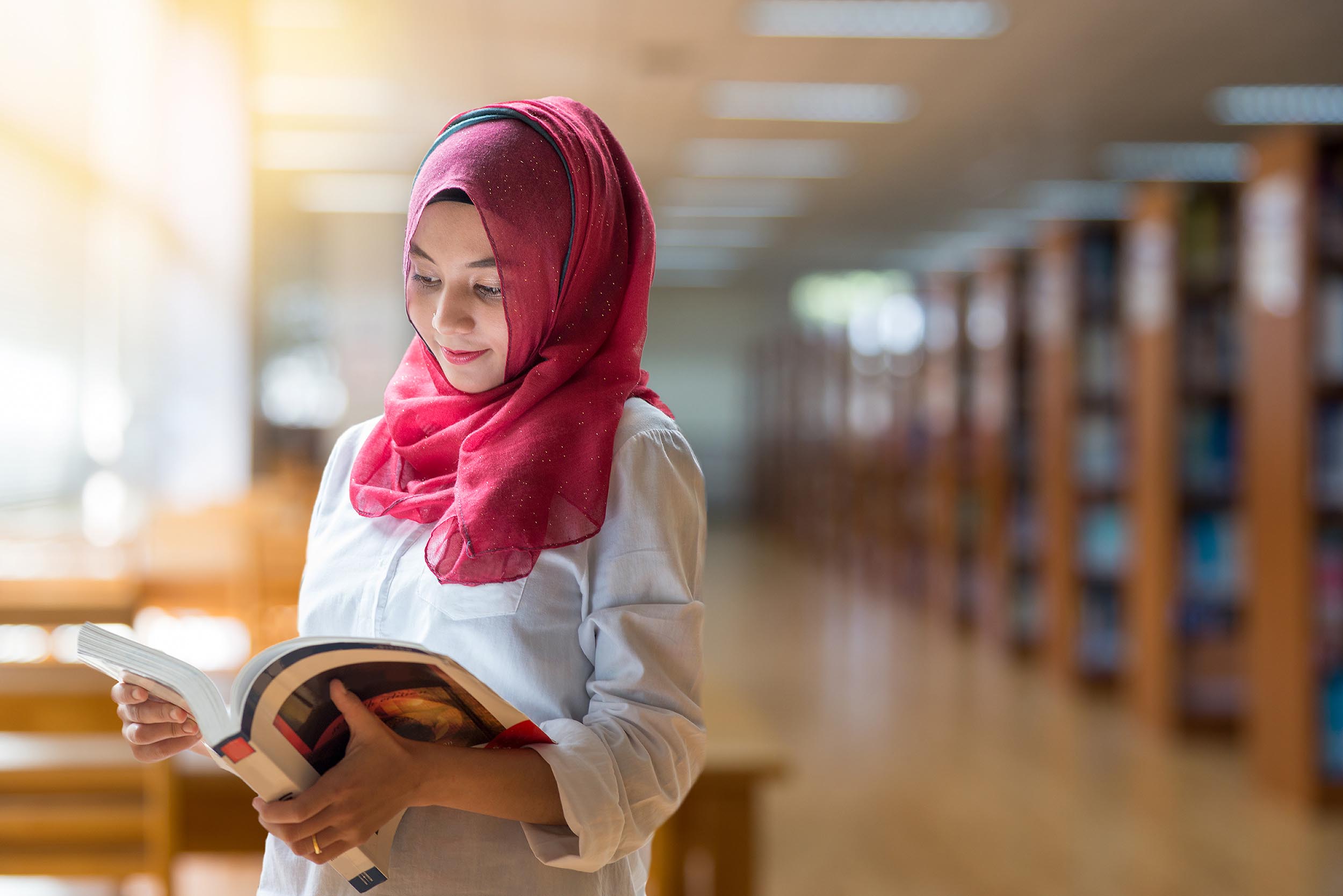To receive a free copy of the chapter of The Content of Their Character that corresponds with this interview, please click here and sign up for our Weekly Digest.
—
This is a lightly edited transcript of an interview conducted on April 30, 2019 with internationally respected scholar Charles Glenn. Dr. Glenn is Professor of Educational Leadership at Boston University. He contributed the chapter on Islamic high schools to The Content of Their Character, a major research project launched by the Institute for Advanced Studies in Culture in order to better understand the moral formation of high school students. The interview was conducted by CultureFeed Editor Joanna Breault.
JOANNA BREAULT: So, in your chapter, which I really enjoyed reading, you mention—and then you later answer—some concerns that some Americans may have about the effect of Islamic schooling. Can you talk a little bit about what those concerns might be that you observed or heard about, and then what your conclusions were about whether they were justified or not?
CHARLES GLENN: Well, I suspect the reason James Hunter asked me to take on the Islamic schools was that I have done a good deal about the issue of Muslim immigrants and their children in Western Europe, where there is a great deal of concern, much more so than in the US. This is in part because of the nature of the Islamic minority in Western Europe being much more working-class, much more uneducated, more inclined to be involved in criminal activities and so forth—in contrast with the United States, where the great majority of Muslim immigrants are in the professions. They’re actually more highly educated than the average American is, so it’s a very different dynamic.
Nevertheless, I’ve been looking and continue to be involved with those issues in another context, where there’s a lot of concern that Islamic schools may be encouraging kids to reject the societies in which they’re growing up and to possibly engage in…violent jihadist activities. This next week indeed I’ll be speaking in Paris at the Sorbonne about this issue in the European context. This is ongoing.
So we found a very different pattern in the American situation. The kids were very much determined to be part of American society. They had many negative judgments about aspects of American culture, as indeed I do, as indeed I hope my children do. It’s not as though everything about American culture is admirable. But that did not lead to their not wanting to be part of the American process. They were very concerned, many of them, to be the kind of examples which would transform American attitudes. Again and again, kids said, “I want to be a doctor, I want to be this or that so that people will say, ‘Gee, you know, what I thought about Muslims isn’t true—they’re really helpful, they’re really good people!’”
So the kids also very much valued the community service projects, which each of the schools had, often doing it jointly with kids from Catholic or evangelical or Jewish schools, doing projects around their communities—again, partly in order to change attitudes. So we found a lot that was really encouraging in terms of the ways in which these kids were engaging with the context that they found themselves in, without surrendering to it completely. You know, they were often, for example, not listening to American teenage music because they felt that that was not consistent with their beliefs, but [they were] very much engaged.
JB: You mentioned other religious schools, and that was something that I found really interesting in your research—the attitude toward, you mentioned particularly, Christian schools. Can you can you talk about that a little bit?
CG: A number of the parents told us that until they happened to move to an area where there was an Islamic school, that they had their kids in Catholic schools because they were looking for an alternative which wasn’t dominated by the kind of youth culture which many of the parents felt would be very damaging for their kids. In this same way in France, by the way, where, as you may know, the French government has banned the hijab, the headscarf, on girls in schools—in the state schools—many of those girls have gone to Catholic schools, where again they’re allowed to wear the hijab. So they find themselves more accepted in Catholic schools than they do in the regular state schools.
JB: Very interesting. And so for parents who are choosing Islamic schools for their kids, how would you summarize their intention behind that choice?
CG: Well, it was mixed, and this causes a real challenge for the staff, particularly the headmasters of the schools. For some of the parents, it was clearly a desire to keep them sheltered from the influences of the wider society, and therefore they wanted a very heavily religion-based education. Other parents are very concerned to get their kids into Princeton, and they wanted a lot of SAT courses and all the rest. And in fact, the schools often boasted about the fact that one of their graduates had just gone to Harvard or that their graduates were going to selective schools.
So the headmasters had to really balance between often somewhat conflicting expectations. There was a tension often between the students and what seemed to be culturally determined—that is, was it the Islam of Morocco or Syria or Bangladesh?—while they were concerned that they would be following what you might call a universal Islam or international Islam, purified of those cultural hangings-on. For the parents, that was often distressing because they wanted their children to be following the kinds of customs that they had brought with them from the old country, while the kids were in fact saying, “No, we are practicing a more authentic Islam because it isn’t so connected with all those customs.”
JB: That’s interesting—so, a real division between the idea of pure Islam and the idea of Islam that’s sort of impacted by the customs that the parents brought from their former countries.
CG: Yes, indeed even as evangelical parents and kids—I’m an evangelical myself—evangelical parents and kids may have the same kinds of things, as do Catholic parents and kids. And my current research is about Orthodox Jewish schools in Europe, and again the sign of tensions which appear there. Are you practicing Judaism in the way it was done in Eastern Europe or are you practicing Judaism that is based upon what is in the Bible? Those kinds of tensions are natural between generations.
JB: Interesting. So in terms of character formation, how did the Islamic schools that you studied go about developing personal and civic virtues in their kids, in their students?
CG: Well, there were really two things that seemed most crucial. One was the example of the staff of the schools. The kids often mentioned that, and the staff often mentioned that—that they felt a very strong obligation to be the examples of how to live in this society.
That included, by the way, the staff who are not Muslim. A number of the schools had staff—in fact, I think all of the schools had staff—who are non-Muslims, who were hired because their school needed somebody who could teach calculus, or whatever it was, and had no handy Muslim available to do that. It was particularly interesting talking to those staff about how they sort of navigated the situation of trying to be examples for these kids, even though they did not share the religious basis of the model. So that was a very important aspect.
Another very important aspect surprised us a little. It was the Islamic Studies classes. Now that’s different from the Quran classes, in which the kids were studying Quran and studying Arabic. Islamic Studies classes were classes—and I sat in on some of those—in which the kids were talking with the teacher about how Islam should play out in their lives. Like all teenagers, they have an enormous number of questions about how they ought to be thinking about themselves, how they ought to be feeling about other people, boy-girl relationships, which were a very fraught issue because the schools generally—although the boys and girls were together in classes—they were not supposed to be interacting socially. Often that’s very hard for 15- and 16-year-old kids. So in those classes they felt they were free to discuss the kinds of issues that they were really dealing with, and I found fascinating that a number of them contrasted this with their experience previously attending public schools, in which they said it wasn’t possible to discuss those kinds of issues, because the teachers were afraid somebody might be offended. If you raised the issue of—oh I don’t know, I won’t even go into examples, but the kinds of things that kids are often concerned about—teachers were not so open as the teachers in the Islamic Studies classes. That I found an astonishing finding. Very interesting! So those classes brought together their faith and their lives.
JB: That’s great. Did you observe some conversation that went on between students and teachers outside of the classroom, or were those discussions mostly within the classroom?
CG: Well, we didn’t get any transcripts, of course, of conversations outside the classroom. But we got half a million words of transcripts, and then two of my doctoral students went on to do their dissertations; one of them has completed hers, and she’s now a professor actually in Turkey. And one is just completing his.
And so we got a lot more interviews as well, but those were always in more formal settings. We did see interactions in the hallways and those kinds of things, and it was clear that there was a good deal of affection between the staff and the kids. In part I think that’s explained by the fact that these are fairly small schools with maybe 200 high school students. Often they were schools that started in kindergarten and went through high school, so they might have 400 students, but only a relatively small number in high school. And so by the time kids get into high school and they’ve often been with the same teachers for a number of years, they form really, really solid relationships.
JB: That’s wonderful to hear. One thing that stood out to me was the idea that “post-secondary life”—I’m quoting now from your work—“post-secondary life in America would present a host of challenges to living as a faithful Muslim”—that that was something that you heard pretty regularly from staff and students. I wondered specifically what kinds of challenges were expected and then how those students were being taught to overcome those challenges.
CG: Well, actually, the challenges which we anticipated were greater than the ones we actually found. I was surprised how often the kids seemed very confident about their ability to navigate. One area, though, where they were often nervous was how they would handle being in a college setting where they weren’t with all other Muslim kids…how they would handle the social relationships with there being situations where young men and women are hugging in the hallways and so forth. How they would handle those relationships was an area of actually more concerned for them than let’s say—as I might have anticipated—whether they would encounter hostility from the wider society and those kinds of things. We didn’t hear that so much; it was “will I be able to fit in?” One of the things which several of the schools did, which I thought was very wise, was to have the seniors take one or two of their courses at a local community college so that they began to be in that sort of a setting while still with the support system of going back to their regular school. And the kids reported that that was a very positive thing—scary at times, but very positive, that it gave them the confidence that in fact they could handle the situation.
JB: That sounds like a smart approach; that’s good. And then you also mentioned… were you going to say something else?
CG: One of the most amusing things which many of the kids said—one of the boys said he was working really hard on persuading his parents it would be all right if he became a lawyer, because they expected to become a doctor like all the other kids in the school, because it’s true—I mean, my eye doctor is Pakistani—you know, a high proportion of medical folks now around the US are Muslim immigrants. So the kids were feeling “well yeah, it’s not necessary that I be a doctor, I could maybe be a journalist or I could be other kinds of things” and they were kind of experimenting with that idea, but clearly they were still getting a message from home that was really expected was “off to medical school!”
JB: One thing that you mentioned was anxiety that Muslim parents have about online recruitment of their children into terrorism, and that Muslim schools may be in the position to counteract this. Can you explain that dynamic?
CG: Yes, in two ways. One is that there’s a lot of research now on jihadists both in the US and in Europe—where of course there have been a lot more. Overwhelmingly, they’re not individuals who had a solid Islamic education. The man who just yesterday or the day before was arrested in Los Angeles for plotting a terrorist attack is someone who only became a Muslim recently. These are not folks who grew up within a solid Muslim environment with sound Islamic teaching. They are often folks who learned about Islam in prison where there’s a very strong effort to reach out to prisoners. The man who killed Theo van Gogh on the street in Amsterdam a number of years ago, I remember I was at that street corner only a day or two later, had been a drug dealer. He wasn’t following the Islamic code at all. But apparently many jihadists are individuals whose lives have been kind of a mess and they feel that by becoming a jihadist they will somehow redeem themselves; they will become suddenly a hero.
So, the other half then of this is that the schools worked very hard about that. In fact, one kid told me that at every single assembly—they had assembly at least once a week and usually more than once a week—the head of the school would talk about how they must not learn about Islam on the web, that they would get misleading messages… “don’t get into that.” One of the schools very much regretted the fact that one of their graduates had in fact been entrapped in a scheme like that. He hadn’t done anything, but he had been in touch jihadists and so forth, and the police had gotten after him and so forth, and they were deeply, deeply embarrassed and concerned about that. So I think that one of the things which I’ve speculated about, I think more on the European experience I’ve had than the American experience, is that often being in a public school where you’re one of a very small minority of Muslim kids and you feel you’re being singled out and so forth, it’s more likely to lead to alienation and hostility then being in a school where you feel supported and warmly welcomed. That doesn’t mean that in a Catholic school, or indeed in a public school, you can’t create an environment where Muslim kids are supported and warmly welcomed—I think you can. But too often these kids reported that when they were in the public school that, in fact, they felt as though they were very much marginalized, particularly the girls, because the girls were in hijabs which made them really stand out, and girls are much more cliquish than boys are generally in high school. While the boys would generally get into basketball or whatever and they were sort of hanging out with non-Muslim boys, the girls reported much more that they had been sort of isolated. So I think one of the positive things about these [Islamic] schools is the ability to create a solidly supportive environment in which kids are able to develop character.
Now let me say that this just as true of Catholic and evangelical schools—I’m sure it’s true of Jewish schools, though until now I haven’t really studied Jewish schools—but there’s a lot of evidence that kids who have been at a school where the staff are unambiguously willing to talk about their convictions and to live according to their convictions, that this has a very powerful influence in developing character. Aristotle famously said, “We don’t develop character by being taught the character; we develop it by imitating those we love.” So give kids experienced teachers who they come to really care about, who exhibit character, the kids themselves will acquire it.
Often teachers at public schools—and let me stress that I have seven children and I sent them all to the Boston Public Schools so I’m not against the public schools, indeed I was a state official responsible for urban education in Massachusetts for 20 years so I’m heavily into the public schools—but often it’s very hard for public schools to have that kind of coherence and consistency, in part because, at least in urban districts, they really can’t choose their staff. Their staff are assigned to the schools on the basis of seniority, under union contracts and so forth, so it’s very hard to create a coherent staff where they all share the same vision of what it is to be a flourishing human being. In an Islamic school or a Catholic or indeed a Montessori School or a Steiner/Waldorf School, they are able to have staff who share the vision that animates the school; those staff in turn are models of character for kids and that’s what counts, if that’s to develop.
JB: That’s well said. So would you have any advice then maybe for a public school teacher who has the desire to model character and impact their students in that way, and yet is in that public school environment?
CG: Well, many of course do, and I have to say that the public schools that do that most successfully are the charter schools and the magnet schools which again have a clearly distinctive mission which allows them to put together a staff who share that mission. It’s harder if you’re an individual teacher and the other teachers in the school don’t share your way of thinking about what it is to be a decent human being, because you feel as though your work is constantly being undermined in effect. But you know, in a number of the schools which my children went to in Boston, because of a strong leader, because of teachers working together and really sharing a vision for this, my kids did acquire a solid sense of what it is to be a decent human being.




